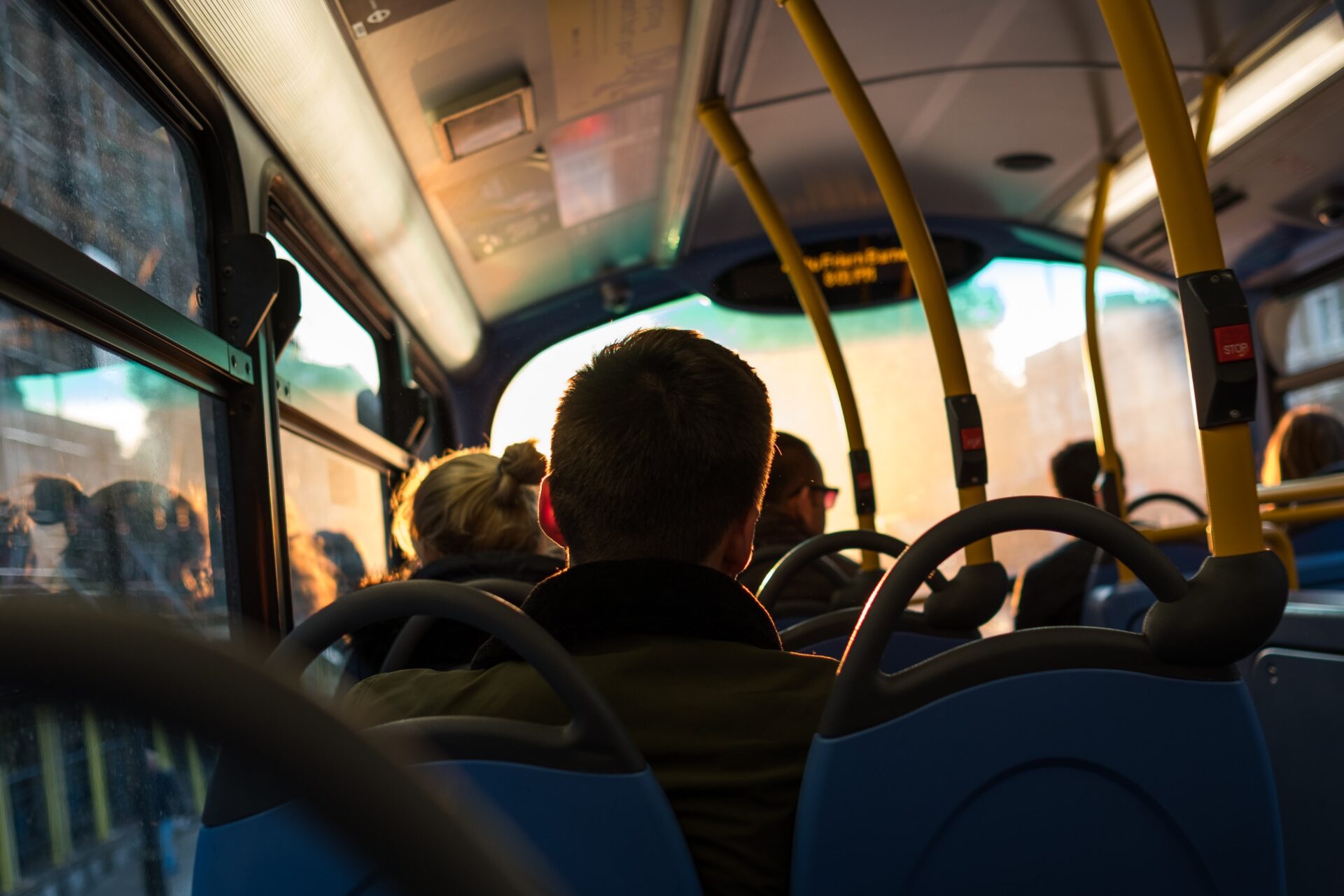This content was created by the Data Sharing Coalition, one of the founding partners of the CoE-DSC.
The Data Sharing Coalition supports organisations with realising use cases at scale to exploit value potential from data sharing and helps organisations to create required trust mechanisms to share data trusted and secure. In our blog section ‘Q&A with’, you learn more about our participants and their thoughts, vision and ideas about data sharing. Jan Bos, Director at Publiek Vervoer, shares his thoughts.
1. Could you introduce your organisation?
Publiek Vervoer is a partnership of all municipalities in the provinces of Groningen and Drenthe and the public transport agency (OV-bureau) Groningen Drenthe. These municipalities and the public transport agency have contracts with carriers for the transport of people under the Social Support Act (Wmo, Wet maatschappelijke ondersteuning), the transport of pupils who cannot travel independently (LLV, leerlingenvervoer), and the provisioning of the Hub taxi and neighborhood buses (run by volunteers). Publiek Vervoer was founded to focus on three tasks: conducting contract management with the carriers on behalf of its clients, offering a complaints desk for travelers who use these services, and being a knowledge and advice center for the further development of this transport system. Here, all municipalities in Groningen and Drenthe work together to improve the efficiency of the transport system in these regions.
We currently have a dashboard that combines our own data from all journeys in municipalities in Groningen and Drenthe. This allows us to gain insights, monitor the journeys, and improve the transport system. An example: in one municipality, 5% of the pupils have to travel individually due to their condition. In another municipality, the same situation applies, but this municipality rides many more individual rides. We can look into this, discover why this is the case, and provide solutions based on our own data.
2. To what extent is your organisation involved in data sharing (within and across sectors)?
We have the journey data of every ride driven within the above-mentioned contracts. In addition, the municipalities are the owner of customer information and Publiek Vervoer has a database that contains this information. On the basis of this database and the journey data, we can conduct analysis. For example, we use our journey data, our customer database, and demographic data from Statistics Netherlands to calculate what the need for transport per municipality would be in 10 years’ time.
Furthermore, apart from using our own data to gain insights, we plan to work closely with the public transport agency (OV-bureau) and connect our database to their database, so we can share data and gain more insights. We plan to use multi-party computation (MPC). One, because of privacy reasons, and two, because we have different clients than OV-bureau and these have to remain separate.
We are involved in realising one of the data sharing use cases of the Data Sharing Coalition, the MPC for MaaS use case. Travelers who rely on Wmo are offered free public transport to stimulate a shift in their mobility habits. If those people don’t travel, what’s stopping them? Do we see certain patterns? This data gives us more insights into people’s travel behaviour and paints a picture of what needs to change so people use Wmo and public transport.
In addition, we are now participating in seven MaaS pilots, one of which is taking place in Groningen-Drenthe. This is a follow-up of the use case of the Data Sharing Coalition. The aim is to combine Wmo and public transport, to make sure that travelers who use Wmo can also log in to the MaaS app. By sharing data, chain journeys (a combination of public transport and other types of transport, including Wmo transport in our region) can also be monitored. For example, by sharing data it would be possible to monitor how often someone in a wheelchair travels by train. Using data, we could then create a pattern, so we know when extra space in the train is needed. Thanks to data sharing and monitoring, all kinds of questions arise – questions that you probably wouldn’t have asked if you didn’t share data. For example: the train service is the same in two places. Why do people in one city travel more compared to others?
3. Why is or should sharing data be important for your industry or domain?
In the beforementioned pilots, we work together with the province of Groningen, the province of Drenthe and the public transport agency (OV-bureau). When we connect our database to the database of OV-bureau, we can share data and we will soon have insights into e.g. the capacity of transport and whether this is sufficient or perhaps too much. It is possible that there is a bus with three people in it and twenty taxis are driving the same route. OV-bureau knows how many people are on the bus, we know how many people use taxis. But if we don’t share data, we don’t know this. If you share data, you gain insights into this overlap. You can examine why people don’t take the bus, and you can make transport flows more efficient. Thus: data sharing is important because we can gain more insights into how the different transport flows relate to each other, where there may be duplication, or where we can complement each other more than has been the case so far.
4. What are the most promising data sharing developments and trends you see in your sector?
The MaaS development (Mobility as a Service) is a very important trend. For example, at the moment it is not possible for people who travel under Wmo to digitally plan, book, and pay combined journeys (chain journeys). They have to call a taxi to arrange a time to get from A to B. Then, when having arrived at location B, they have to take the bus. This all has to be arranged and paid for separately. In the pilot we are realising, the MaaS app will ensure that travelers with a Wmo indication get a service that arranges all of this at once. Digitisation is increasing and people are used to using apps, so they also want to be able to use apps for their transport. By setting this up, we are preparing for the future. The next step is to also monitor these chain journeys. Data sharing can help to see where improvements are needed. For example, transport providers can better manage the transport capacity.
We believe that by connecting platforms and thus being able to share data, insights are generated that help to better monitor and adjust the operational transport system.
5. How do you see the future of data sharing, and what steps are you currently taking in that direction?
We see possibilities to connect various transport related platforms and use MPC to “share” our data, the data of the public transport agency, the data of Statistics Netherlands, and the provinces. That is why we want to work closely with the province of Groningen, the province of Drenthe, and OV-bureau. Together, we talk about where will we be in 2030. All parties agree that we need to create one integrated system that combines Wmo and public transport. To achieve this, we have to share data with each other. So we are now exploring this.
We believe that by connecting platforms and thus being able to share data, insights are generated that not only help to better monitor and adjust the operational system, but that also play a role in broader themes that are important to local and regional authorities. For example, by monitoring where people travel to (e.g. GP, shopping center, library), you can create a pattern that shows that some places are often visited and others are not. This has an effect on the transport flow. This is where data can be useful. Data and insights can help municipalities to adjust the transport to these locations and match the necessary capacity. In addition, it can help municipalities to ensure that quality of life increases in both the city and rural areas. Or help them make adjustments to reduce fossil fuels.
6. Why are you participating in the Data Sharing Coalition?
We are increasingly focusing on issues in which data sharing can play a role. The approach of the Data Sharing Coalition is scalable, which allows you to expand and grow. And it enables you to use generic agreements for data sharing. The Data Sharing Coalition helps us take the first steps, to create a starting point/foundation to which data sets of other parties can easily be connected later on. It is set up in such a way that provinces can easily start sharing their data as well. This foundation is crucial, because our approach is that we always implement our transport flows as efficient, optimal, and sustainable as possible in collaboration with various partners (municipalities, provinces, transport companies, public transport agency, consumer platforms, and sounding board groups). By sharing data, all the necessary insights are combined so the best results can be strived for, both for people and the climate.




